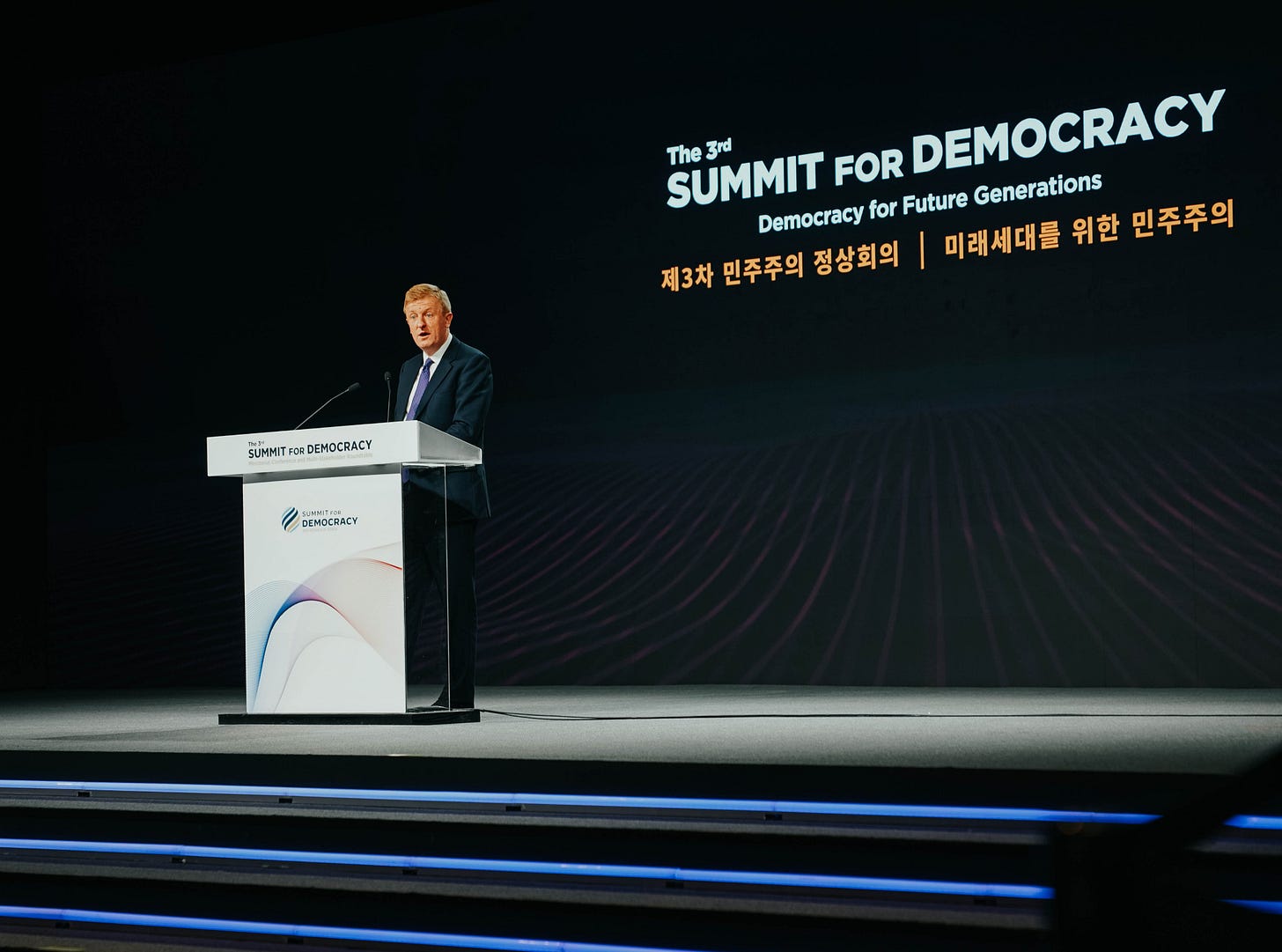Hello,
“We are in a dark room with only a small match for light. We don’t know how big this dark room is, or how deep it is. We can see the other small pools of light that come from our close Five Eyes partners, and we can try and pool our limited light together to help us navigate the room. We know that in this dark room there are things that could hurt our democracy, but we can only use the matchstick’s tiny pool of light to illuminate small areas at a time. If we had invested in our China capabilities properly, we would be using a torch, not a matchstick."
That dramatic rendition comes from evidence I wrote, published this week by Parliament’s National Security Strategy (Joint Committee) as part of its inquiry into ‘Defending Democracy’. It goes on to discuss the threats the Chinese Communist Party poses to British democracy, the accidental threats the British Government can pose to British democracy, and the media’s role in both.
In this bilateral, we discuss the first of those at length, rarely the second, and on occasion the third. They are interlinked to varying degrees and as such are usually worth keeping in mind as a whole.
The publication of the above evidence coincided with the Government’s response to a Foreign Affairs Committee inquiry into the Indo-Pacific becoming public. As Cato the Elder was fond of saying at the end of all his speeches - “Carthage must be destroyed” - so Parliament’s Committees have adopted the warcry “publish some sort of China Strategy.” The Government is in no rush to do either of those things. Their response did include some more scant detail on efforts to get the China Capabilities investment up and running - we learn for instance that it includes events, a curriculum ‘covering beginner to practitioner level, with strands for senior civil servants and future leaders, on a range of priority knowledge and policy topics related to China’ and a language element. We do not learn a) how many jobs have been created with the money, b) how much money is there, nor c) who is auditing how the money is being spent.
- Sam Hogg, Editor
In this week’s briefing, we examine:
Indo-Pacific visits
Hong Kong
Fidelity
Diplomacy Tracker
Politics

Three of the British Government’s top officials were in the Indo-Pacific this week, discussing matters implicitly relating to China. Deputy Prime Minister Oliver Dowden visited South Korea for the third Summit for Democracy, then went to Japan, while Foreign Secretary David Cameron joined Defence Secretary Grant Shapps in Australia.
Additionally, a delegation of British politicians was in China, where they attended the 12th China-UK Leadership Forum in Beijing, including China APPG Chair Richard Graham and Labour’s Shadow Minister for Asia Catherine West. Liu Jianchao, head of the International Department of the Communist Party of China Central Committee and likely future chief diplomat delivered a speech. David Lidington, President of the Great Britain-China Centre (GBCC) and former Minister for the Cabinet Office was present. They met Wang Huning, chairman of the National Committee of the Chinese People’s Political Consultative Conference (CPPCC), who hosted a meeting.
In its third iteration, the Summit for Democracy saw hundreds of officials from around the world’s democracies gather to thump out some ideas on how to protect and advance the system. Naturally, artificial intelligence hung over the gathering. US Secretary of State Antony Blinken used a speech to warn it must be developed with democratic underpinnings and values, rather than those of authoritarian regimes. Notable input came from Taiwan’s excellent Minister for Digital Affairs, Audrey Tang 唐鳳, who shared insights from the island’s recent elections.
Cameron’s trip to the Indo-Pacific saw him spend time in Thailand, “an important UK security partner, particularly on advancing peace and reconciliation in Myanmar and protecting international law and regional cooperation,“ per the Government’s readout. From there, he joined Shapps in Australia for the annual Australia-UK Minister Consultations (AUKMIN).
In Australia, Shapps signed a new security pact with Deputy Prime Minister and Defence Minister Richard Marles. The Defence and Security Cooperation Agreement includes an agreement “which will make it easier for our Armed Forces to operate together in each other’s countries, as is currently happening through Operation Interflex – the joint training of Ukrainian troops in the UK. It will also help facilitate UK submarine crews visiting Australia as part of the AUKUS partnership.” Cameron and Shapps met with Prime Minister Anthony Albanese, Foreign Minister Penny Wong and Marles to “collectively galvanise support on shared global challenges including support for Ukraine, peace in the Middle East and stability in the Indo-Pacific.” Australia’s readout had further details of the agreement.
Cameron also spoke to local media. On China, he stated "We want to engage with China where we can … [on] things like climate change, but clearly, there are some very challenging aspects of its behaviour in Hong Kong and when it comes to the treatment of Australia in recent years. We are seeing a much more assertive China and this only underlines the need for Britain, Australia and like-minded partners to work together." Regarding Taiwan, the Foreign Secretary was asked directly “do you regard a Chinese invasion or a blockade of Taiwan as a genuine threat?” He responded: “It is clearly something we're very concerned about. We don't want to see any unilateral action to change the situation between China and Taiwan and there's no doubt that were there to be something like a blockade, it would have an absolute calamitous effect on not just on Taiwan but on the global economy. We had recent evidence of calamitous event with COVID, and I think if that were to happen with Taiwan, it would be more significant.” Worth reading the full interview.



